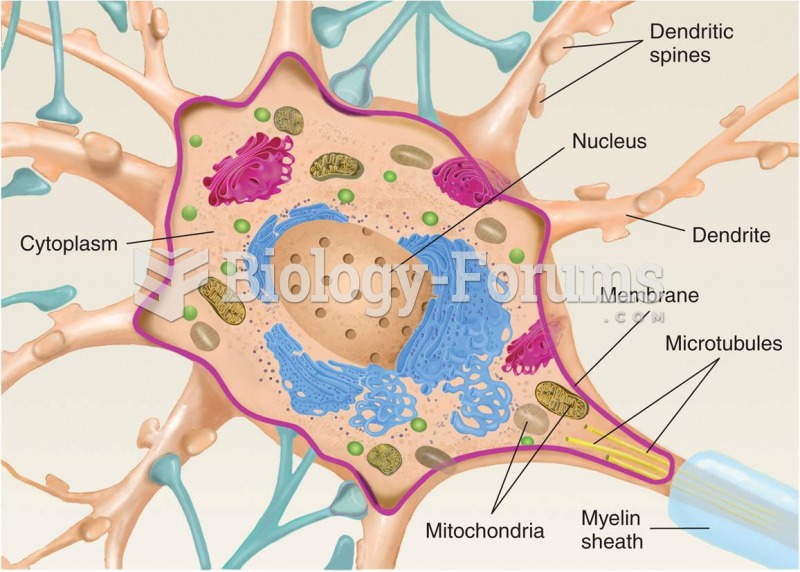|
|
|
Inotropic therapy does not have a role in the treatment of most heart failure patients. These drugs can make patients feel and function better but usually do not lengthen the predicted length of their lives.
Though Candida and Aspergillus species are the most common fungal pathogens causing invasive fungal disease in the immunocompromised, infections due to previously uncommon hyaline and dematiaceous filamentous fungi are occurring more often today. Rare fungal infections, once accurately diagnosed, may require surgical debridement, immunotherapy, and newer antifungals used singly or in combination with older antifungals, on a case-by-case basis.
Multiple sclerosis is a condition wherein the body's nervous system is weakened by an autoimmune reaction that attacks the myelin sheaths of neurons.
Human stomach acid is strong enough to dissolve small pieces of metal such as razor blades or staples.
Recent studies have shown that the number of medication errors increases in relation to the number of orders that are verified per pharmacist, per work shift.
 Maxine Williams was the founder and first president of the AAMA. Printed with permission of American
Maxine Williams was the founder and first president of the AAMA. Printed with permission of American
 Wives and husbands are equally as likely to initiate violence, but unlike this photo, wives are more ...
Wives and husbands are equally as likely to initiate violence, but unlike this photo, wives are more ...





